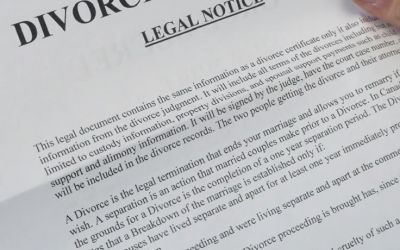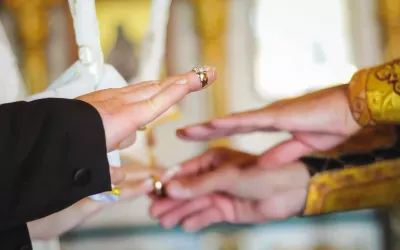
Divorce in Dubai for Indians: 2025 UAE vs Indian Law Explained
Table of Contents ▼
Divorce is never easy, and navigating it in Dubai, away from home, can add additional stress for Indian nationals.
Knowing the legal process is essential when filing for divorce in Dubai for Indians.
Starting the Divorce Process in Dubai for Indians
Indian nationals looking to divorce in Dubai must start by submitting an application to the Family Guidance Section of Dubai Courts. While Muslim expatriates divorce under Sharia Law, non-Muslims may apply the personal laws of their home country, as provided by Federal Law No. 28 of 2005, which allows non-citizens to apply their own legal system.

This step is required for both Muslim and non-Muslim expatriates, including Indian nationals, as it aims to facilitate reconciliation before the divorce case proceeds further.
Required Documents
For those seeking divorce in Dubai for Indian nationals, you’ll need to present key documents. A marriage certificate copy, translated into Arabic if necessary, is required. Both spouses must submit passports and visa copies. Children’s passports and visa papers are also needed if applicable. After submission, the Family Guidance Section starts mediation by appointing a conciliator.
Mediation and Conciliation Process
A mandatory mediation process exists for divorce in Dubai for Indian nationals. The conciliator’s role is to facilitate discussions on financial matters and child custody without lawyers present, encouraging honest dialogue. Failure to reach an agreement results in a referral letter for court adjudication.
Court Proceedings for Divorce
When mediation fails to settle the dispute, the divorce case goes to court. Both parties can present their evidence and arguments to the judge. The court will issue decisions concerning divorce, financial settlements, child custody, and division of property.

Evidence Presentation: Both spouses must present documents and witnesses to support their claims.
Legal Representation: Unlike mediation, legal representation is allowed in court. It’s advised to retain a UAE family law attorney, especially in contested cases.
After reviewing all evidence, the court will make a binding decision regarding the divorce.
Choosing Between UAE Law or Indian Law for Divorce in Dubai for Indians
Indian nationals have the flexibility to pursue divorce in Dubai under either UAE law or Indian law, based on their situation and mutual agreement.
Divorce Under UAE Law
When both spouses agree, divorce can proceed under UAE law through Dubai courts. This is the common and recommended path for most expatriates, including Indian nationals seeking divorce in Dubai for Indians.
Divorce Under Indian Law
If Indian law is preferred, the couple can file for divorce at the Indian consulate in Dubai, following the Indian legal framework. Consulting a lawyer experienced in both jurisdictions is highly recommended.
Financial Matters and Alimony
For divorce in Dubai for Indians, the court carefully evaluates financial support and asset division. Alimony payments, typically monthly, may be awarded to the spouse who depends financially on the other. The amount considers marriage length, financial contributions, and lifestyle maintained.
Property and assets will be fairly divided by the court to ensure justice for both parties.

Child Custody
Child custody is a vital concern in divorce in Dubai for Indians. The court prioritizes the child’s best interests, generally awarding custody of younger children to the mother, while fathers often receive visitation rights. Factors such as emotional health, education, and parental bonds influence custody decisions.
Finalizing the Divorce
The divorce is finalized after the court decides on custody, alimony, and asset division in cases involving divorce in Dubai for Indians. Both spouses receive a divorce certificate used to update their marital status in official records.
Divorce in Dubai for Indian Nationals: Essential Considerations
All relevant documents, such as marriage certificates and passports, must be translated into Arabic for divorce in Dubai for Indian nationals to comply with UAE legal standards. Hiring a lawyer with expertise in UAE divorce law is crucial if disputes arise over finances, property, or custody.
Mediation is a mandatory step before court proceedings. The court focuses on the child’s best interest, often awarding custody to the mother and ordering financial support. It’s important to know how rulings are enforced internationally if assets are abroad.
Conclusion
For Indian nationals, divorce in Dubai may seem complex, but with informed legal support, it can be navigated easily.
Easy Wedding offers comprehensive assistance regardless of whether you pursue divorce under UAE or Indian law.
Reach out to our team for a stress-free divorce experience in Dubai. We also facilitate court marriages for Indians living in Dubai.


